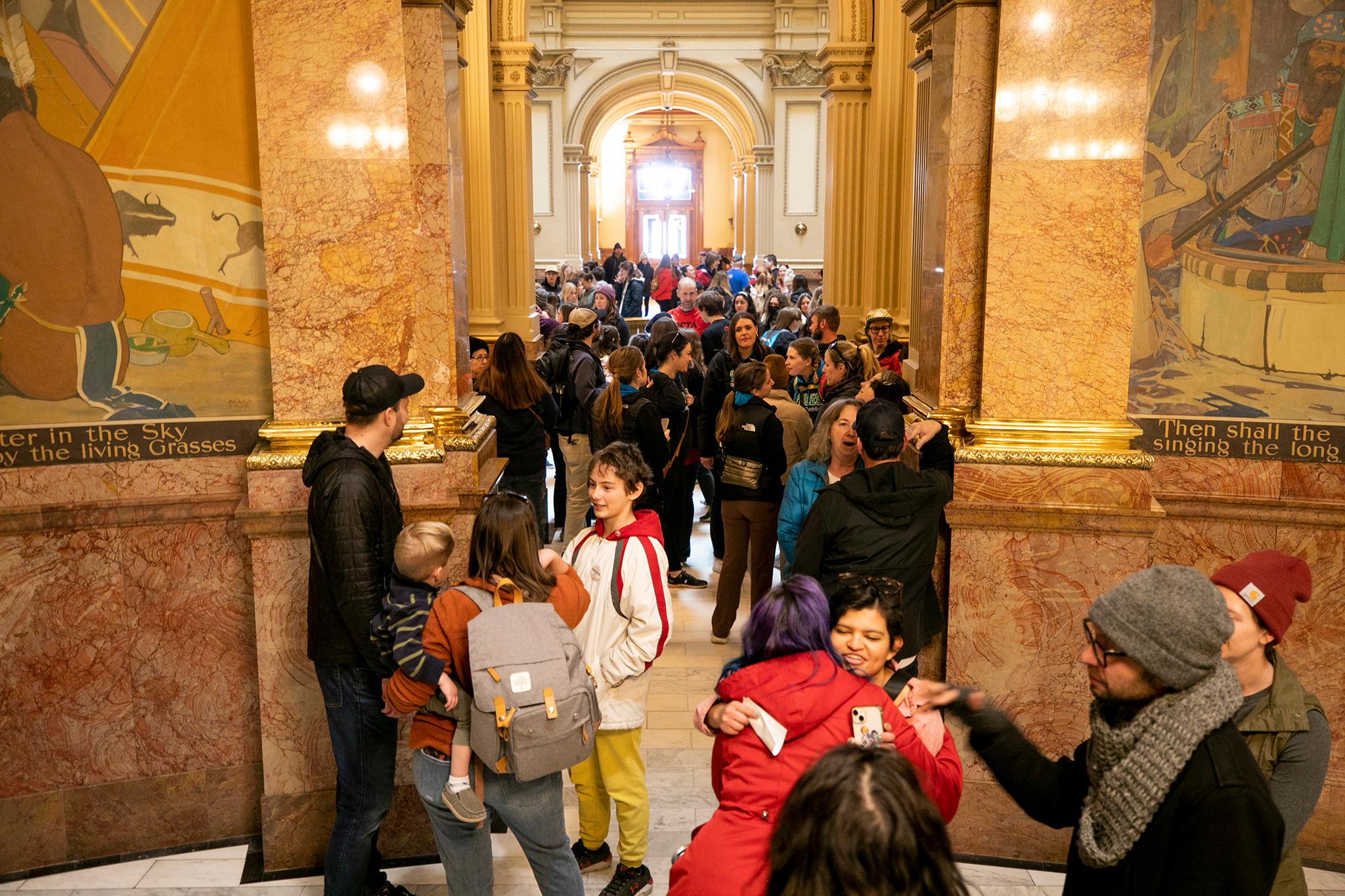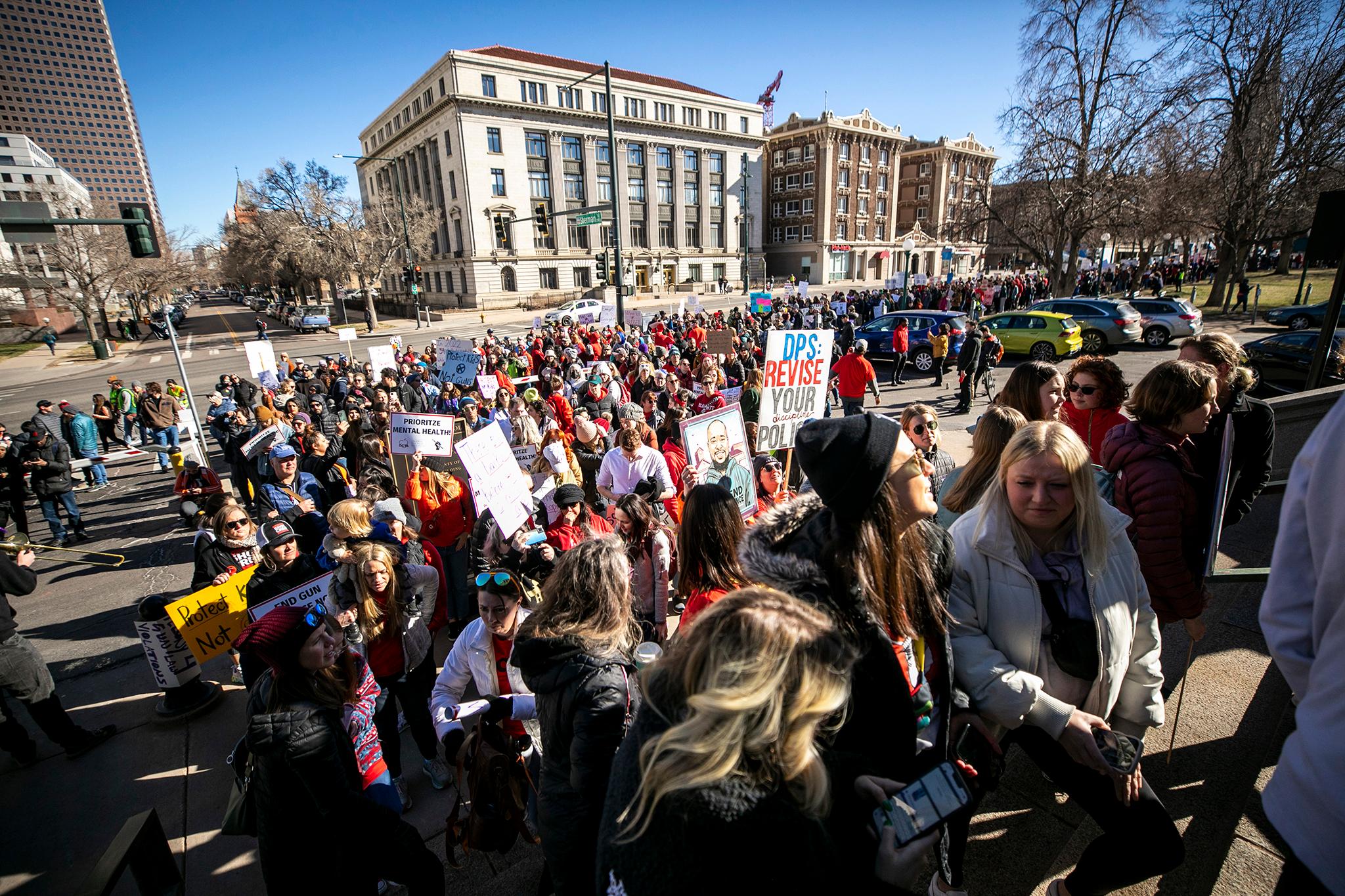Denver Public Schools canceled classes throughout the district on Friday, freeing up thousands of students, teachers and faculty to march on the Capitol. They rallied on the statehouse steps, chanting and cheering in the morning's cold.
"Do something. Protect us. Say something. Help us," North High School sophomore Angeli Cazares shouted to the crowd. "People I know didn't make it past middle school due to guns. People I love didn't get to go to prom, and people I see every day never made it home. I'm tired of this being normal. I'm so sick of people in power staying silent. You can do more."
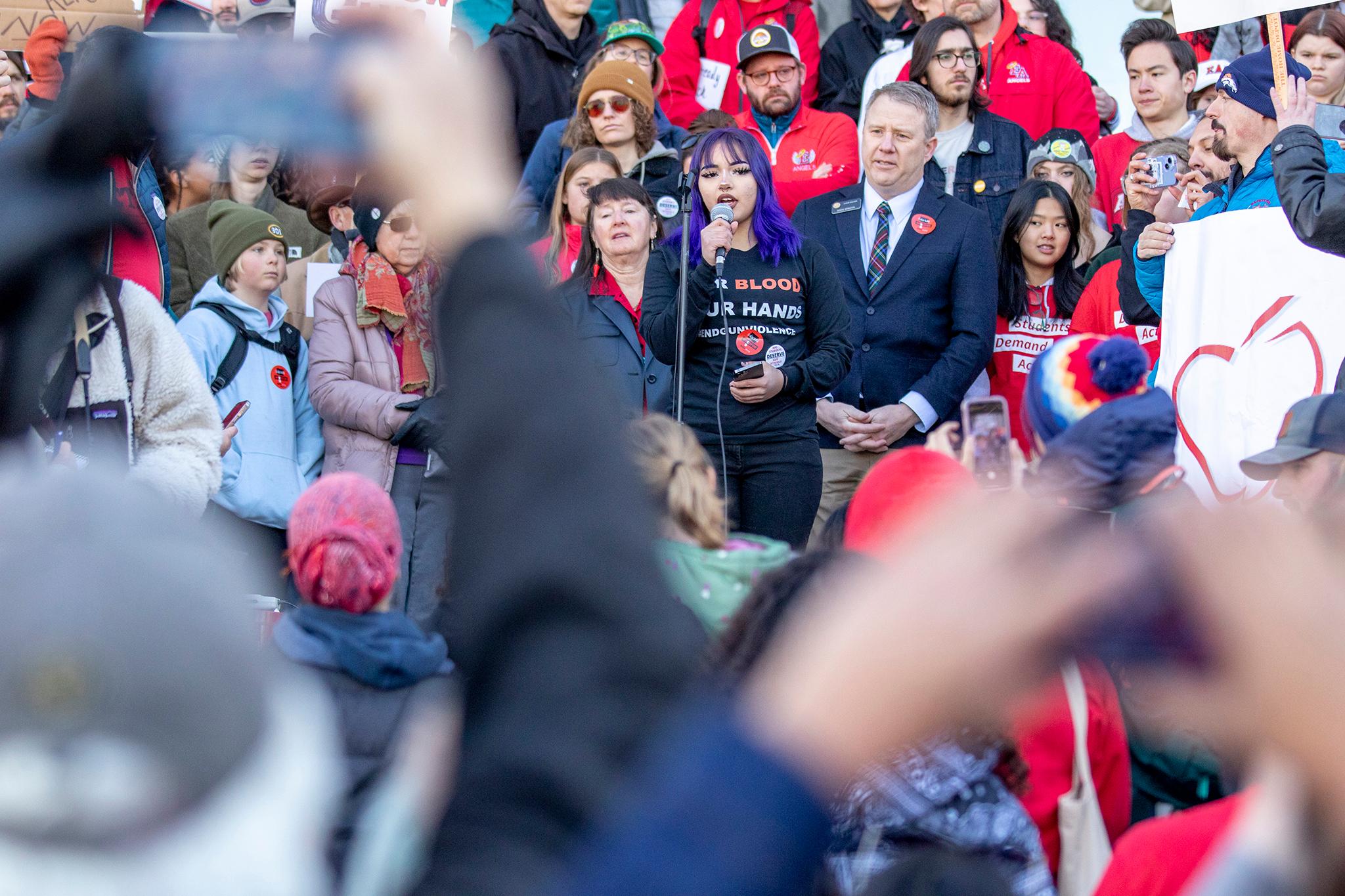
This was the third such protest in as many weeks. The first came on March 3, after the shooting and death of Luis Garcia near East High's campus, when students walked out of class and flooded the Capitol Building. Protests on Thursday and Friday came after another shooting at East on Wednesday, when a student shot two administrators and later took his own life. The two administrators are recovering.
While much of the speeches on Friday morning sounded similar to those made in recent weeks, Denver Classroom Teachers Association president Rob Gould made clear they were there to push for specific laws to curb future violence.
"It's not an unsolvable problem. Our legislators, all of our legislators, have to act now on the common-sense solutions we've been screaming for," he said. "Our students, our educators, our communities can't wait."
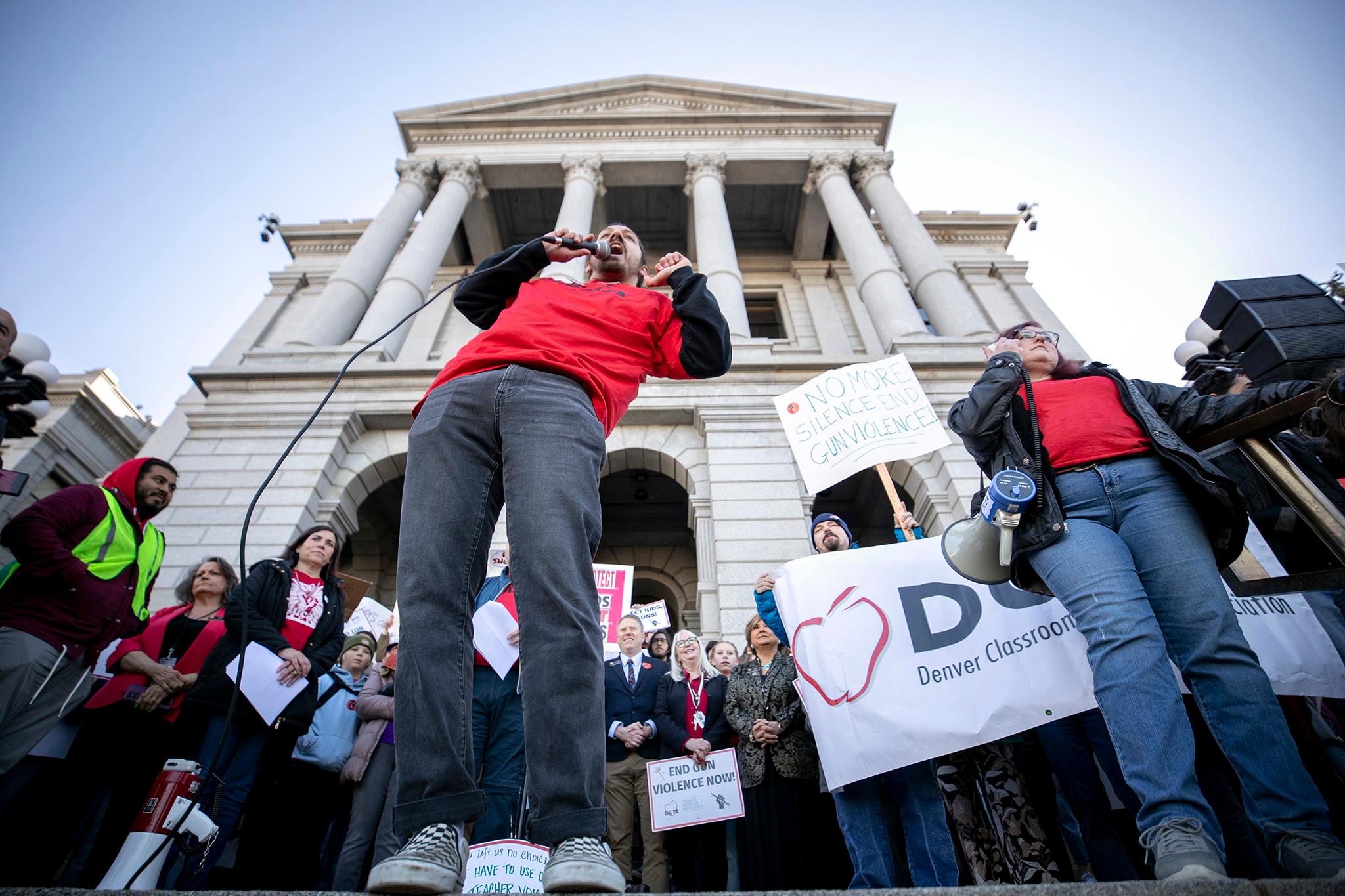
Denver Public Schools' political liaison Deep Sing Badhesha said the district supports these five bills under consideration at the capitol:
House Bill 23-1219, would require gun buyers to wait at least three days to pick up their firearms from the seller.
House Bill 23-1230, which defines what counts as an "assault weapon" and prohibits their manufacture and sale in Colorado.
Senate Bill 23-168, which would repeal protections for gun manufacturers that currently shield them from lawsuits related to shootings.
Senate Bill 23-169, which would increase the minimum age to purchase a firearm to 21, with some exceptions.
Senate Bill 23-170, which would expand Colorado's "extreme risk protection order" (or "red flag") statute to let medical care providers, mental health-care providers, educators and district attorneys petition a court to take weapons from a person at risk of harming themselves or others.
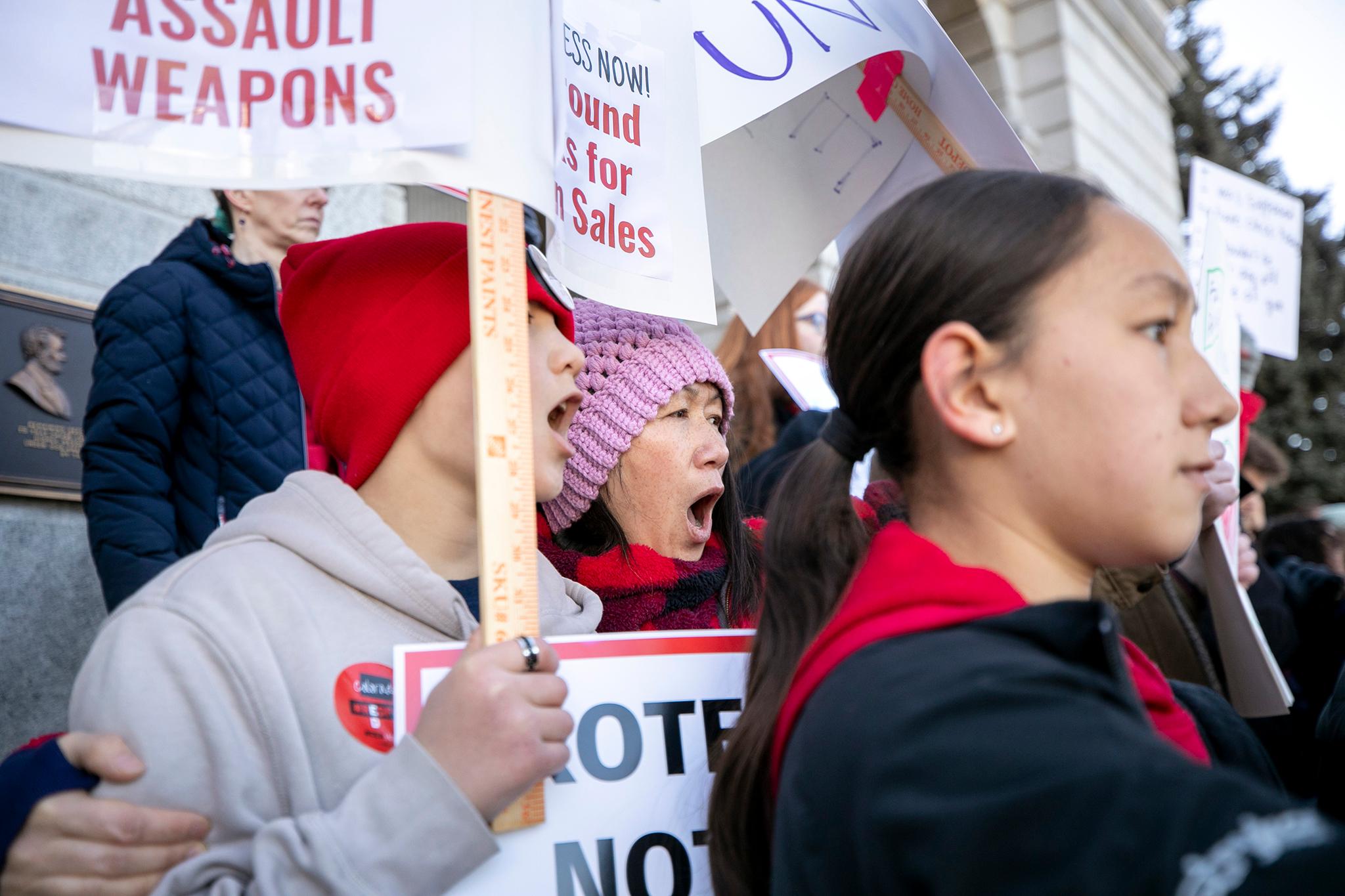
Legislation won't fix everything, but advocates say it's a start.
Darlene Rivera, a social studies teacher at the Denver Center For International Studies, showed up Friday morning with some students.
"We're here today to make our school safer," she told us. "We need to make a statement that guns are not more important than safety in our schools. And then we need funding."
Rivera echoed Gould, who also pivoted from legislation to school funding. Gould, who was the lead negotiator in DCTA's big 2019 strike, has been pushing this for years.
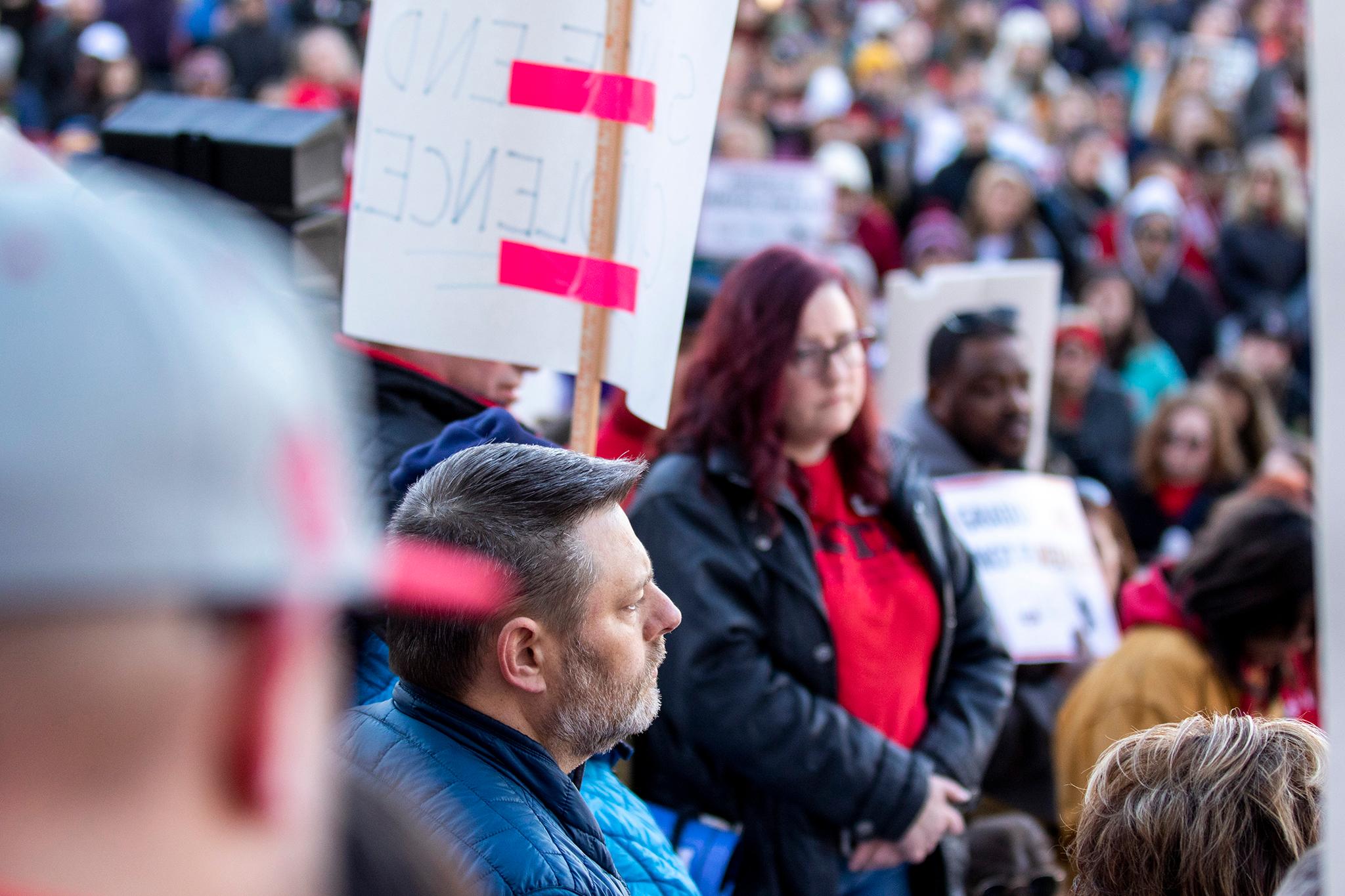
For Rivera, money is intimately tied to the gun violence issue. Strapped budgets mean there are fewer resources to help students in the short term.
"That means we have to pick and choose with what kinds of supports we have in schools. That means we cut staff. That means maybe not every school has a social worker or a psychologist or the counselors that are needed for the mental health support side of it," she said.
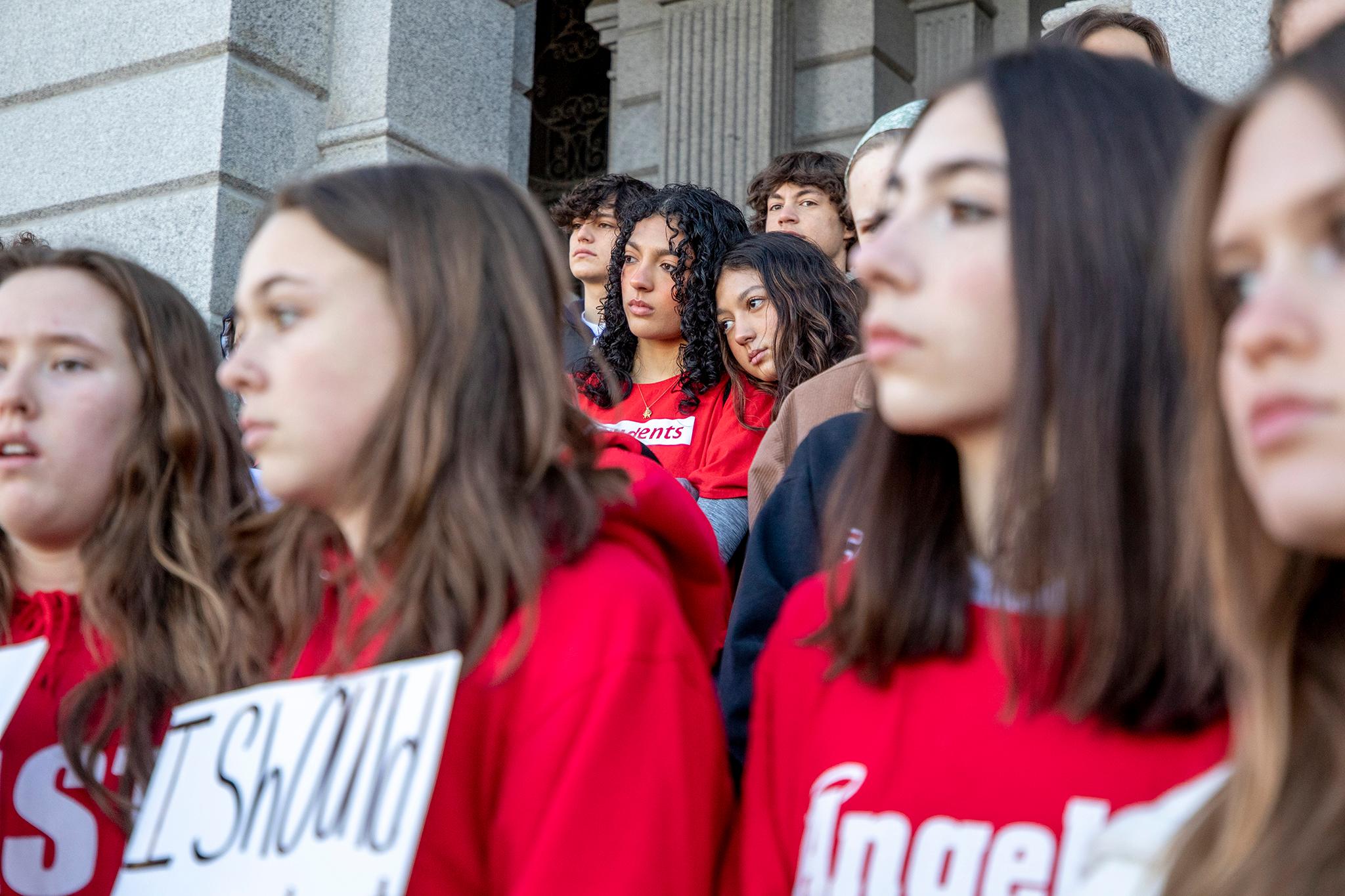
In the long term, she added, underfunded teachers will have a harder time creating the constructive and civil culture that might prevent some of those mental health issues in the first place. She also thinks Denver's schools don't have the right priorities in mind.
"Schools are the place to start to change that culture. How do we use our words? How do we build communities full of kindness? How do we respect diversity, embrace each other? These are all things we can learn in school," she said. "They're things I learned in school in the '70s, and I feel like, right now, our focus is on testing."
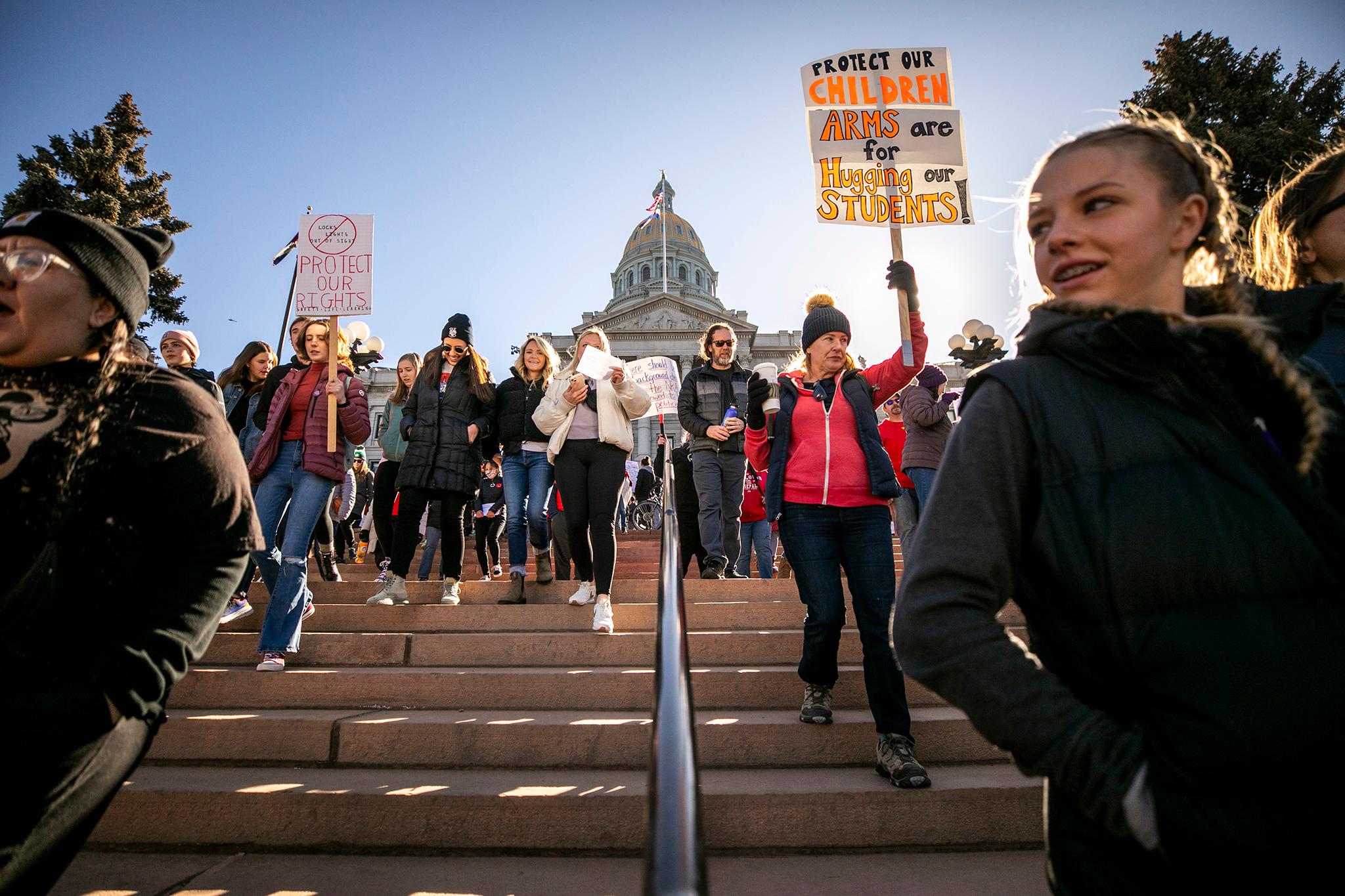
The students and educators who filled the Capitol Steps and streamed, once again, into Colorado's halls of power will have to see if their advocacy helps push these bills to the governor's desk. Polis has not told us or indicated whether he would veto any of the proposals, but a group of students did get a meeting with his chief of staff, former legislator Alec Garnett, who wanted to hear their concerns.
A spokesperson from his office did send a statement about what he supports:
"This session, the Governor called for the landmark Extreme Risk Protection Order law, a law he signed in 2019, to be strengthened, and for more legal tools to go after ghost guns. The Governor is supportive of the bills around waiting periods, and raising the age to 21 for gun purchases and also supports repealing the provisions of SB 23-168."
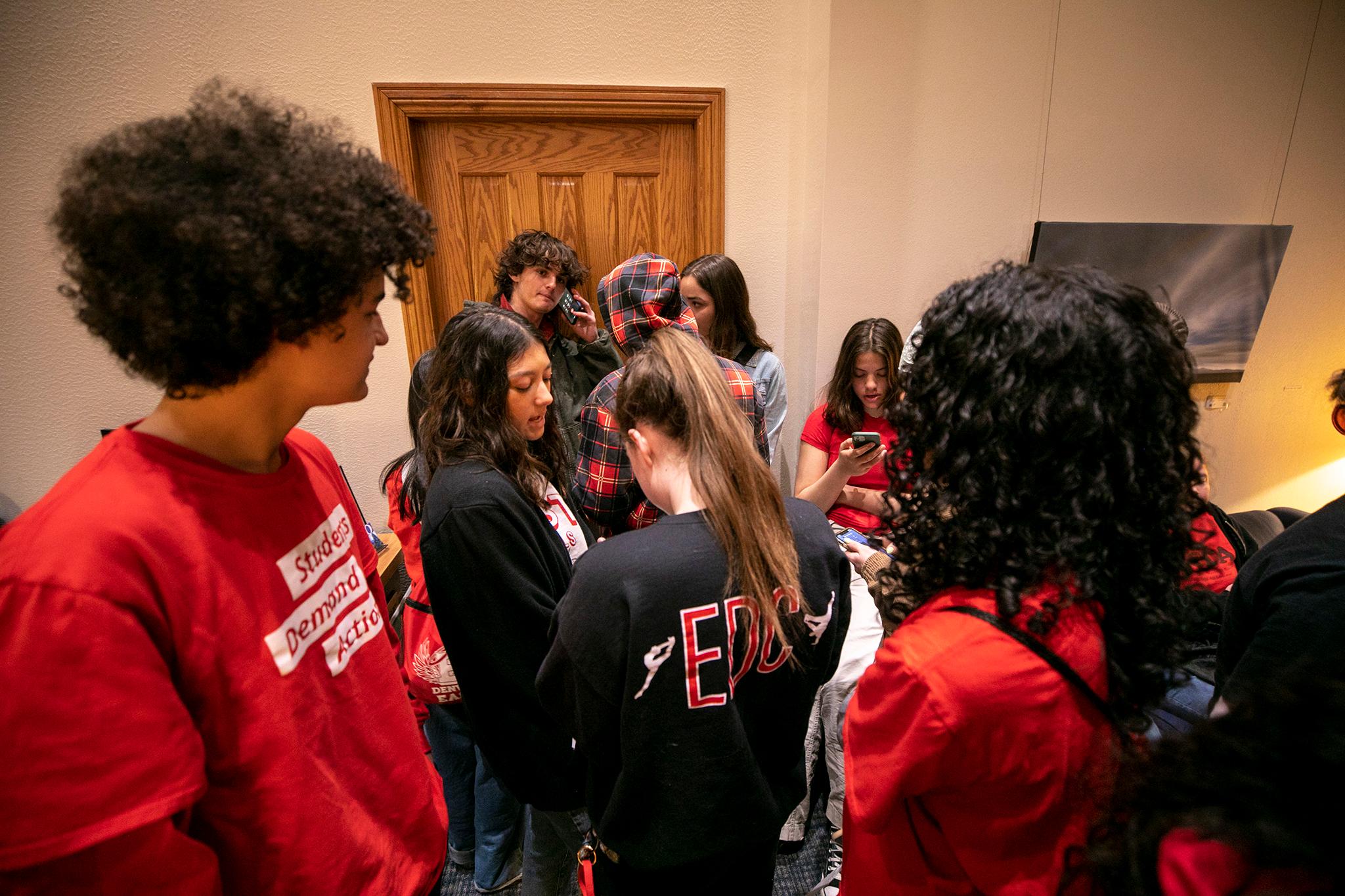
While students leading ongoing conversations with lawmakers have mostly been tactful and respectful in their approaches, their words outside the building cut right to the chase.
"Your silence is killing us. Your actions are fatal. Our blood, your hands, and I've had f****** enough," Angeli Cazares shouted to the crowd. "How many people need to die for you to realize you need to do more?"
Editor's note: This article has been updated to clarify that DPS is publicly supporting five bills being considered at the state capitol this session. It was also updated to include a statement from Gov. Polis' office.
